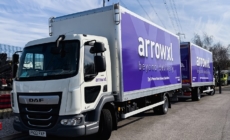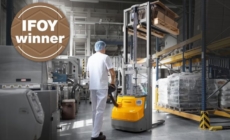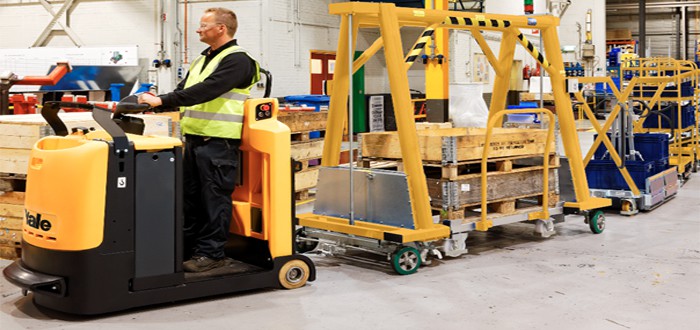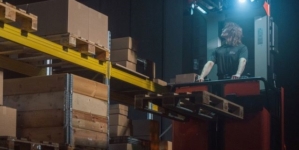-
ROSSLARE EUROPORT TARGETS HEALTH & SAFETY WITH CAMERA TELEMATICS PARTNERSHIP - 2 days ago
-
Landmark Study Reveals Wearable Robotics Significantly Boost Safety and Efficiency in Industrial Environments - July 24, 2024
-
Visku Tackle The Retail Seasonality Challenge One Pallet At A Time - July 22, 2024
-
KAMMAC AND BERGEN LOGISTICS STRENGTHEN FASHION & LIFESTYLE SERVICES IN THE UK - July 19, 2024
-
TENTBOX EXTENDS PARTNERSHIP WITH ARROWXL TO SUPPORT INCREASING DEMAND - July 17, 2024
-
The Perfume Shop improves customer journeys while driving profitability in partnership with Scurri - July 17, 2024
-
ZEROMISSION SECURES £2.3M ($3M) INVESTMENT TO ACCELERATE ELECTRIC FLEETS - July 16, 2024
-
BCMPA CELEBRATES SUCCESS OF 2024 CONFERENCE - July 15, 2024
-
Best of the Best: Jungheinrich Celebrates Triple International Award Win - July 12, 2024
-
GOPLASTICPALLETS.COM CALLS ON NEW CHANCELLOR RACHEL REEVES TO CONSIDER PLASTIC PACKAGING TAX REFORM - July 10, 2024
Yale Tugger Train System supports line feed manufacturing operations.
In response to industry insight garnered through its automotive application centres, Yale Europe Materials Handling has launched the flexible, modular Tugger Train System to support Just-In-Time (JIT) and Just-In-Sequence (JIS) manufacturing applications. With a range of different trolley types available, the Tugger Train System offers an ergonomic and dependable solution to manufacturers seeking lean and efficient line operations.
“In order to increase the productivity and efficiency of manufacturing lines while at the same time saving space, Just-in-Time and Just-in-Sequence operations typically adopt a Milk Run approach to line fulfilment,” said Tracy Brooks, Automotive Industry Manager, for Yale®. ”The Yale Tugger Train System is ideally suited to these environments, providing the flexibility to deliver a range of smaller kits while retrieving empty containers. Whatever the specific customer configuration requirements, the Tugger Train System provides a tailored solution for smarter, more efficient operations.”
The Tugger Train System focuses on four key trolley types with a number of variations to cover multiple application needs. A versatile cargo liner, available with two or three bays, is ideal for dollies and stacked kits. The gantry trolley with its electrical lift can carry frame carts of up to 1000kg while the stackable platform trolley provides a flexible solution for pallets and cages. The shelf trolley, in either 600mm or 800mm widths with four shelves, is available in a number of variants including mesh sides (600mm), roller sides (800mm), sloping shelves or without shelves. These options, and custom solutions, mean that the Tugger Train System can be designed for any given environment based on line configuration, container type and weight of load, offering complete flexibility to enable the delivery of the right kit to the right place at the right time.
Intended for internal use, the Tugger Train System can be supplied stand-alone or as a complete package with the Yale MO50T or MO70T tow tractors to provide an efficient and cost-effective solution for line-feed operations for loads of up to five or seven tonnes respectively. Ideal for intensive manufacturing environments where productivity and operator ergonomics are key, the MO50T and MO70T feature scooter control with electric steering as well as a low step height to reduce operator fatigue. With access from both sides, the large suspended platform with personnel present sensor allows the operator to remain within the footprint of the truck for protection.
Slow-speed forward and reverse direction buttons offer a coasting function to allow the operator to hitch and unhitch the modules with ease while the large battery capacity and optional side extraction ensure reliable operation and easy charging.
Tracy concluded: “The Yale Tugger Train System is an integrated modular system that provides great flexibility allowing customers to select trollies depending on what materials are being delivered in what containers to which production line.” www.yale.com

































